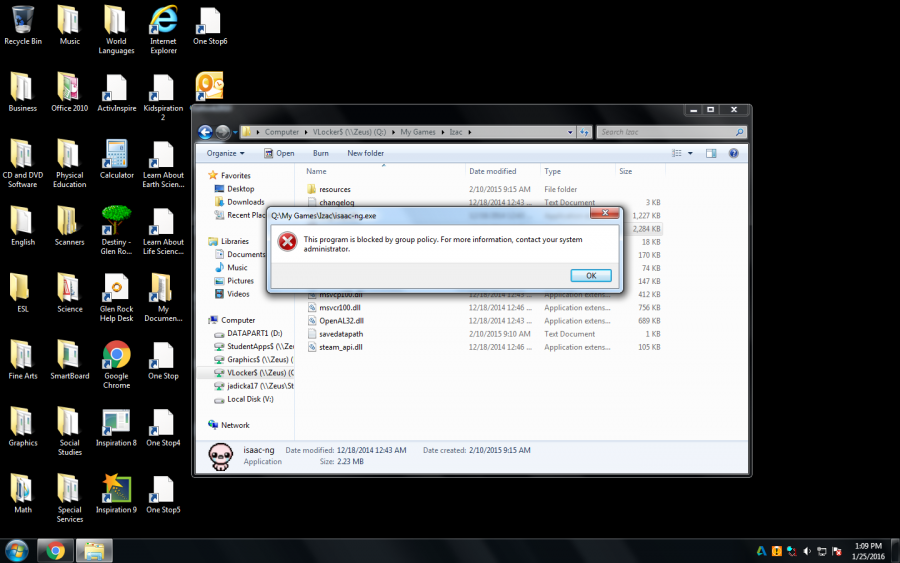Game over: school shuts down computer games
Photo Credit: Alethea Jadick
When trying to access games on school computers, students will now find this message, instead of the game opening.
January 26, 2016
It is now more difficult than ever for students to access video games and filtered websites on school computers.
On Friday, Jan. 15, the technology department deleted all non-educational software and programs from the schools’ computer system.
Ben Solomon, a sophomore, said that he saw students playing games on school computers during the lunch period, but he didn’t witness it interfering with class.
Teachers, however, said otherwise, citing that students were playing the games during class and using proxy servers to access websites that were otherwise blocked.
Previously, students accessed video games from the My Games folder in the Vlocker. A favorite was The Binding of Isaac, a top-down game in which players control a child attempting to escape from a demon-infested basement.
After multiple teachers complained about too many students playing games on computers during school, the administration decided they needed to act upon the complaints.
Scheduled sweeps of school software will now take place to ensure that distracting websites and games stay off our computers.
Because it is impossible for games and inappropriate websites to be totally blocked from the school server, faculty members are encouraged to report improper computer use to the technology department and to the school administration.
Using school computers is a privilege for students and using computers for unapproved games violates the district’s acceptable use policy. If there is a reoccurring problem with a student, it is possible for privileges to be revoked.
“In a nutshell, the policy states that the Glen Rock network and computing systems are expected to be used exclusively for education-related functions and applications, ” said Mr. Joe Frangipane, an assistant network administrator for the high school.
He said that the acceptable use policy is in a packet that students take home for their parents to sign at the beginning of the year.
Without this signed form, students are restricted from all computer use.
Violations of the policy include having games stored on one’s computer account (this is considered a minor violation) and having malicious software used for spying, which is considered a major violation.
Halo and Minecraft are two examples of games that the school is trying to get rid of. Games such as these are largely unlicensed and illegal copies of games that should not be stored on the network, according to Frangipane.




